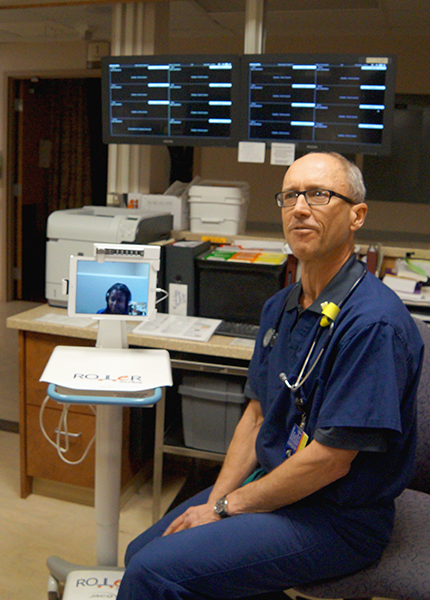
Dr. Michael Stolpe speaks with scribe Hannah Robinson, a pre-med student in Charleston, South Carolina, from the Campbell County Health
Emergency Department. Campbell County Health started using the scribe system in early February, and already doctors are seeing an improvement in patient care and the time patients spend in the ED.
How does it work? Simple. The scribes are monitors on rolling units that the doctors can take from room to room. It's got a microphone and a headset, so the scribe can here what the doctor and the patient is saying, and doctors have the option to hear what the scribe says. The face behind the monitor is a medical student who is transcribing the conversations and discussions the doctor has with each of their patients that day. Many of us are familiar with this kind of technology, as it's similar to using Skype or Facetime, applications that many of us use to video chat with friends and family far away.
Having the scribe there to take notes on diagnoses, prognoses, test results and treatments for the patient's chart allows the doctors more time to see more patients and helps patients' spend less time in the hospital.
You can read more about the scribe system in the Gillette News Record article, 'The Future is Now', by Paul Christiansen posted on March 22.